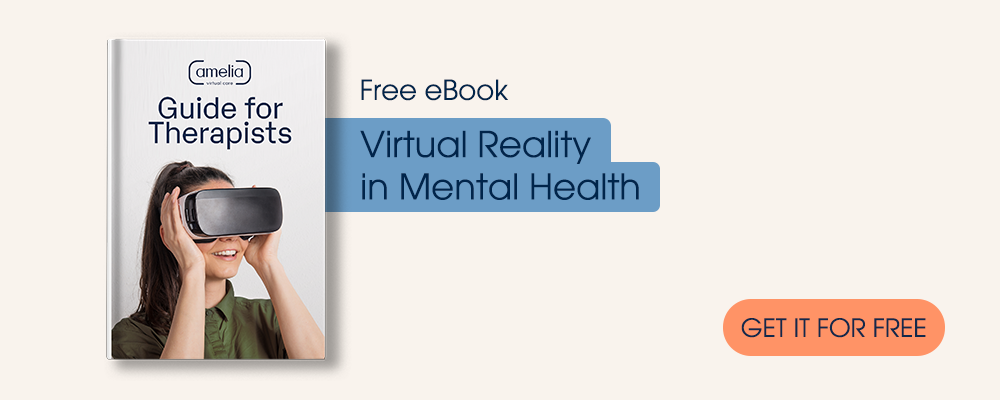Many individuals from around the world live with depression. According to the World Health Organization, the common mental disorder affects more than 264 million people of all ages.
Although pharmacological treatments are available, such as antidepressants and selective serotonin reuptake inhibitors (SSRI), these prescription drugs have some downsides. On the one hand, mild-to-strong side effects can occur. On the other hand, these medications can be costly for those who do not have good health insurance coverage.
Today’s post will therefore explore drug-free alternatives to help combat depression symptoms. These options do not aim to substitute specific treatment regimens for patients with depression. However, integrating actions that include improved lifestyle habits, better stress coping mechanisms, and cognitive-behavioral therapy could enhance mental well-being.
What is depression?
Per the Diagnostic and Statistical Manual of Mental Disorders (DSM-5), individuals with this mental health disorder will experience a depressed mood or loss of interest or enjoyment in everyday activities for at least two weeks.
Physical symptoms can accompany the slowed mental functioning, including:
- Sleep disturbance or insomnia
- Fatigue
- Aches
- Weight loss
- Trouble concentrating, etc.
The 2017 National Survey on Drug Use and Health (NSDUH) reported that approximately 7.1% of all adults in the United States had at least one major depressive episode.
How to improve mental health without medication?
In some cases of depression, pharmacological treatments may be necessary. Criteria to prescribe drugs will depend on disease severity and other factors.
However, there are different approaches that people living with depression could integrate to help support a healthier mental well-being.
Managing Stress
In a study by Wichmann et al., individuals with depression were found to have higher concentrations of cortisol when compared with those with anxiety disorders. In the right amounts, cortisol contributes to executing certain bodily functions correctly.
However, if individuals maintain elevated levels of the steroid hormone, they could develop:
- High blood sugar
- High blood pressure
- Weakened immune system
- Weight gain
And the risk of serious health conditions like diabetes, heart disease and stroke increases.
A contributing factor to high and prolonged levels of cortisol is stress. Without adequate coping mechanisms, individuals with depression or other mental conditions could indeed exacerbate the stress and elicit undesirable health consequences.
In stressful scenarios, it may therefore prove recommendable to suggest the following activities:
- Deep breathing: This approach may accompany other practices such as mindfulness. In this scenario, individuals slow their breathing and focus their attention on different parts of the body, i.e. rise and fall of chest.
- Exercise: Participating in sports or going outside for a light jog could help release endorphins and certain neurotransmitters that boost mood.
- Progressive muscle relaxation: In this practice, individuals intentionally tighten muscles throughout the body and hold tension for several counts. After that time elapses, individuals let go of the tension to bring the muscles to a lax state. This approach also incorporates elements of mindfulness.
Reducing Alcohol Intake
It is extremely important to recommend a healthy and, in cases of a substance use disorder, medically supervised discontinuation of alcohol consumption
Alcohol is a central nervous system (CNS) depressant that could, in effect, worsen symptoms of depression, such as insomnia.
For example, while alcohol acts as a sedative and could appear to be a “quick-fix” alternative solution to sleep problems, building evidence has suggested that long-term alcohol consumption may disrupt sleep quality and even intensify the need to drink more. Compounding this is the real possibility of increased tolerance due to continual drinking over an extended period and an elevated risk of other health issues.
Additionally, alcohol lowers inhibitions and may result in risky behaviors or poor decisions with long-term consequences. In these scenarios, individuals living with depression may then experience feelings of guilt or lack of self-worth and heighten the overall depressive state.
Finally, if a person is on antidepressants, drug-alcohol interactions may occur, leading to stronger side effects and an increased risk of drug overdose.
Cognitive Behavioral Therapy and Virtual Reality
Cognitive-behavioral therapy (CBT) has been proven to be as effective as any individual antidepressant for mild to moderate depression. However, unlike medication, the therapeutic approach helps enable individuals to identify and change patterns that negatively affect the mental and emotional well-being.
In the psychology domain, CBT is one of the more commonly used theories thanks to its scientificity. This approach, in fact, best adapts to new technologies because of its techniques and premises. For example, mental health professionals have employed virtual reality (VR) technology to apply CBT techniques to patients.
Fortunately, much scientific evidence has shown the benefits of VR technology in clinical practices, including but not limited to:
- Streamlined costs (for both patients and clinician)
- High engagement (due to gamification and virtual settings)
- Extreme similarities to in vivo exposure (yet all within the therapy office)
It may therefore be recommendable to consider VR technology as a support tool, albeit not a substitute.
Is there a permanent cure for depression?
To date, there is no cure for depression.
This mental illness continues to afflict many people worldwide of different ages. However, the absence of a cure does not mean that depression is unmanageable. With proper treatment, guided approaches, and novel practices, depression is a mental illness that could improve over time.
If you’re curious to learn more about Amelia Virtual Care and its virtual reality technology in psychology practices, contact us to set up a demo session. We would be glad to show you all of the features and advantages of the breakthrough psychology tools.
Other articles that might interest you:
- What’s the difference between stress and anxiety?
- 5 things you should know about Prolonged Exposure Therapy













